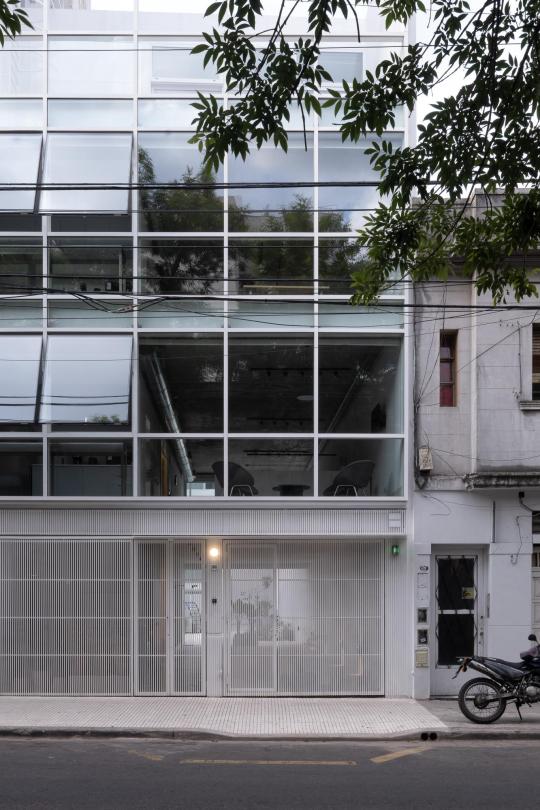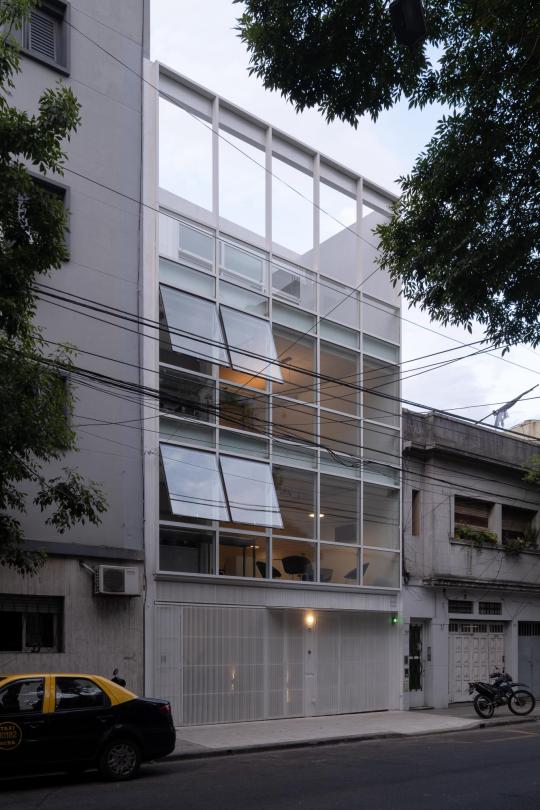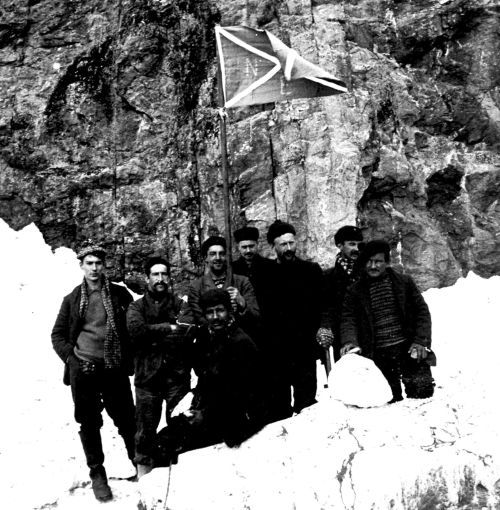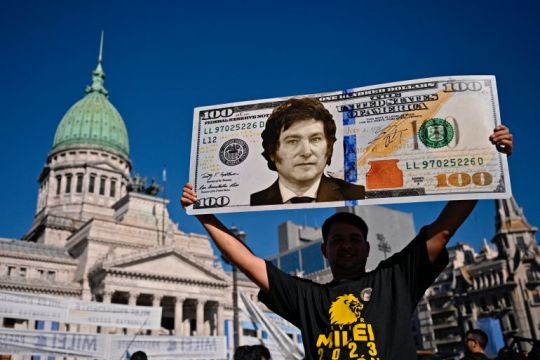#Argentine National Congress
Text

Congreso Nacional, Buenos Aires, Argentina: The Palace of the Argentine National Congress is a monumental building, seat of the Argentine National Congress, located in the city of Buenos Aires. It is located in the barrio of Balvanera at its limit with Monserrat, an area informally known as the Congreso neighbourhood. Wikipedia
81 notes
·
View notes
Text






Moreno 2681 by palca estudio
The project is located in Balvanera, a central neighbourhood of Buenos Aires that presents a heterogeneous built profile with a strong commercial presence and an identity characterised by cultural diversity. This pattern is further consolidated when understanding its direct link with the building of the Argentine National Congress, with the large number of hotels distributed throughout the area or with the Miserere Square, that acts as a hub for trains, buses and subways. Balvanera could be interpreted as a neighbourhood of national identity.
Architecture as identity. The assignment originates from the clients' need to have administrative offices in new building that determines their identity as an institution. These offices had to be complemented by apartments to be used by people travelling from the provinces of Argentina to Buenos Aires for a certain period of time. Among the clients' initial demands was the use of a glass façade as an image towards the city, which for us was an essential part of the initial program.
The potential of mixed uses. The initial idea was to locate work and domesticity in the same block. This option was rapidly discarded after the first tests when the incompatibility of the circulation dynamics was verified. Taking advantage of the long proportion of the site (7.60 x 47.60 m) it was then decided to divide the uses into two independent blocks: the office one in the front, more exposed to the street and the domestic one in the back, more reserved in the centre of the block. In this way, a daily relationship is generated between all the people who inhabit the building while providing privacy in each of the parts.
Adapt to the given conditions. Both blocks adjust their buildable profile to the limits determined by the internal front line. This imaginary line is determined by the Government of the City of Buenos Aires to delimit a non-buildable area in the centre of the block. Instead of looking for alternatives to deal with this restriction, the project adapts to the resulting silhouette. In this way, two individual blocks are proposed to take advantage of all the possible footprint and are developed with the necessary height to deal with the proposal.
The void as a meeting place. Both building blocks are connected through a central void that works as a meeting point. This void is projected through a garden of organic shapes, white stones and growing vegetation that aims to generate meeting places for the people who work and inhabit the building.
Versatile and timeless from the beginning. The office block is planned on four levels with open spaces that allow to deal with the constant changes in today's work dynamics. Each level has outdoor spaces materialised by balconies on the lower floors and a terrace on the upper floor. The domestic block is also planned on four levels but made up of two stacked duplex apartments. Each one of them operates as an individual unit designed with the minimum elements necessary to be temporarily inhabited.
How to be efficient in the Argentine context. In an economic context as complex and variable as the Argentine one, it is necessary to be rational and efficient in the materialisation of architecture. In that sense, the construction of the building is proposed in a synthetic and traditional way through the implementation of few elements, but optimising their use. To do this, we proposed a reinforced concrete skeleton and lightweight masonry walls, textured white anodised aluminium frames in the windows and airtight double glazing for greater thermal efficiency. In this way, we make it easier to deal with suppliers while achieving efficiency and durability in the use of the elements.
A new way of perceiving the environment. Faced with a complex and heterogeneous urban context, the project is created from synthesis as contrast. Pure lines, geometric composition and white elements characterise a building that aims to communicate order and timelessness.
Design: palca estudio
Location: Balvanera, Buenos Aires, Argentina
Year: 2023
Photography: Javier Agustín Rojas
17 notes
·
View notes
Text
YPF was expropriated in 2012 under President Cristina Kirchner, who currently serves as vice president, in an initiative spearheaded by her economic adviser at the time, Axel Kicillof.
The Kirchner administration had said that underinvestment by private oil companies justified a state takeover, which Argentina’s Congress approved. Argentina had already been mired in years of legal battles with U.S.-based investment groups over its 2001 debt default.
Opponents of the government said the YPF expropriation was a brazen attempt to take control of promising new oil and gas developments in the country’s Vaca Muerta basin.
The government ended up paying $5 billion in bonds as compensation to YPF’s former top shareholder, Spain’s Repsol. But smaller shareholders said they were left out by the Argentine government.[...]
Kicillof, who now serves as governor of Buenos Aires province, condemned the court decision in a long message posted on X, formerly Twitter.
He called the New York court’s ruling a violation of national sovereignty that only benefits litigation funders, referring to them as vultures. He defended the government’s seizure, touting the economic benefits that the energy deposits in Vaca Muerta would generate for Argentina.
Kirchner’s “decision to recover YPF and put it to work for national interests is one of the most important political actions of recent decades,” he said. “It’s an example of governing with courage and love for the homeland.”
Burford Chief Executive Christopher Bogart applauded the decision. The stock price has surged since the court ruled in Burford’s favor in March. “I’m pleased to see this extraordinary win and the value it could create for our shareholders once we complete the litigation process and collect from Argentina,” he said in a statement.
8 Sep 23
19 notes
·
View notes
Text




On 2nd November 1902 The Scottish National Antarctic Expedition led by William Speirs Bruce set sail from Troon on the “Scotia”.
I would think not many of you will know of this expedition itself but most of you will have seen the photos of Piper Kerr playing his bagpipes to the indifferent penguin.
William Speirs Bruce work in both the Arctic and Antarctic should see his name ranked very highly, even alongside Robert Falcon Scott, Ernest Shackleton and Roald Amundsen, yet hardly any Scots will recognise his name at first glance.
That is because unlike Scott and Shackleton, Bruce was a difficult man – he may have been on the autistic spectrum – who was wholly dedicated to science and did not seek attention or publicity for his work. Most London newspapers ignored him, and unlike other explorers he had no media sponsor, as we would call them nowadays. Nor did Bruce die or need to be rescued on his expeditions – doing things right was rarely a way to endear yourself to the press.
There have been attempts in recent years, especially during the centenary of the SNAE, to boost Bruce’s reputation. There was also a documentary from the BBC in 2011, but he is still not given the accolades that he surely deserves.
Born in London in 1867 to a Scottish doctor and his Welsh wife, he was given the middle name Speirs. He was sent to boarding school in Norfolk and prepared to study medicine at University College London, but a brief stay at the Scottish Marine Station a floating research laboratory – at Granton Edinburgh convinced him to stay in Scotland.
In 1895, the continental Antarctica was entirely unknown, as was much of its coastline. At the 6th International Geographical Congress a motion was adopted declaring “the exploration of the Antarctic Regions” to be “the greatest piece of geographical exploration still to be undertaken”. During the following 25 years, no less than sixteen major expeditions were to be sent to Antarctica during an episode widely referred to as The Heroic Era of Antarctic exploration. Amongst the various national expeditions organised was one from Scotland. Its leader, William Bruce, was one of the most capable polar scientists of his generation.
The Scotia reached the Falkland Islands in December, continuing south to make the first oceanographic exploration of the Weddell Sea. Scotia, with a complement of 33, wintered at Laurie Island, South Orkney Islands. Here a meteorological observatory Omond House was established on 26th March 1903. The island was mapped, and when the engineer of Scotia, Alan Ramsay, died during the Antarctic winter, his grave became the first in the island cemetery.
Scotia revisited the Falkland Islands in December 1903 then called at Buenos Aires, Argentina, where transfer of the meteorological station to the Argentine government was arranged through the British Legation. Scotia sailed to the Falkland Islands for a third time then back to Laurie Island where the transfer was made on 22 February 1904. This second southern voyage saw the discovery of the northern part of Caird Coast, Coats Land (named for two brothers who had funded much of the expedition). With no landing possible on the Antarctic continent the ship then called at Gough Island and Cape Town, South Africa. A comprehensive scientific programme was conducted throughout the expedition; cine photographs and sound recordings were made.
14 notes
·
View notes
Text
Last December, weeks after assuming office, Argentina’s far-right president Javier Milei presented the National Congress with a package of reforms in response to its most dire economic crisis in decades. Milei, a former TV pundit and self-proclaimed “anarcho-capitalist” who campaigned on a promise to “blow up” the system, was following through on a promise to take whatever necessary measures to fix it.
Milei has hardly been shy about what measures he has in mind. Under the guise of “a public emergency” in the omnibus bill, Milei intends to assume sweeping new executive powers that would allow him to bypass Congress on major policy issues. The reforms—from the privatization of major industries to the gutting of labor protections—are a radical attempt to restructure the Argentine economy. They are also a pretext for consolidating power.
Yet the provision most likely to tighten Milei’s political grip is also among the least obvious. Originally found in a few short lines tucked into the otherwise sprawling bill, and now potentially being considered separately, is a wholesale change to the country’s electoral system. Milei’s proposal would adopt the American electoral system for its lawmakers, known as winner-take-all, in place of its proportional system of representation. That could tilt Argentina’s political field in a way that weakens the opposition and strengthens Milei’s own hand.
Like most democracies worldwide, Argentina elects its lawmakers through a proportional electoral system, where a party’s share of seats in a legislature roughly mirrors its share of the vote. In the 2023 national election, Milei’s La Libertad Avanza (LLA)—a coalition of far-right parties—won 28 percent of the vote and, in turn, 27 percent of the lower chamber’s seats up for renewal. While proportional systems vary considerably in their design from one country to the next, as a general principle, all aim to ensure that seats correspond to votes. They do so by electing multiple representatives from each legislative district, and then allocating seats to parties based roughly on their vote share: If a party in a six-seat district wins 50 percent of the vote, it would win three of the six seats.
Only a few major democracies, including the United States, use winner-take-all, the main alternative to proportional representation. Winner-take-all systems instead use single-member districts, where dominant parties often enjoy an outsized advantage by securing seats out of proportion to their support. Consider a state like Massachusetts, where the dominant Democratic Party typically wins around two-thirds of the statewide vote but is awarded 100 percent of the state’s congressional seats. Republicans don’t constitute a majority in any of the state’s nine districts, so they are unable to win the single seat available—shutting them out from representation entirely. Nationally, it’s common for one party to win more U.S. House seats than their vote share would warrant.
Certain authoritarian leaders have picked up on the benefits afforded to them by the American style system. In 2011, new electoral rules in Hungary designed by Viktor Orbán’s Fidesz party introduced single-member districts for more than half of legislative seats. It then won 67 percent of seats with only 45 percent of the vote. In both 2014 and 2018, Fidesz secured supermajorities with less than half the vote. In El Salvador, Nuevas Ideas, led by Nayib Bukele (the self-styled “world’s coolest dictator”), recently slashed the size of its legislature from 84 to 60 members, making it more akin to America’s unusually small Congress—another way to produce nonproportional results—and has promised to adopt winner-take-all elections next in an effort to dilute the opposition. In 2009, as public opinion began to turn against Venezuela’s Hugo Chavez, his party reduced the number of legislators elected under proportional rules. Chavez’s party safeguarded its majority in the legislature despite losing majority support, winning 57 percent of seats with 48 percent of the vote.
As Harvard political scientist Pippa Norris explains, winner-take-all systems “manufacture majorities” by design, exaggerating a dominant party’s electoral wins. In Great Britain—the system’s country of origin—postwar governments received, on average, 54 percent of seats on 45 percent of the vote. For a political party committed to democracy, a seat bonus may be harmless. But for one committed to dismantling it, it offers a dangerous leg-up. Changes to an electoral system can offer a veneer of democracy—elections still happen and votes are still counted—while allocating power to a party out of proportion to its actual support.
Winner-take-all systems, unlike proportional ones, are also uniquely vulnerable to gerrymandering, amplifying the seat bonus effect. After the introduction of single-member districts in Hungary, Fidesz took the pen on map-drawing, and in 2014 won 88 percent of single-member seats with 45 percent of the vote. Milei intends to do the same. His proposal for switching to winner-take-all is coupled with language that hands responsibility for drawing new districts to the executive branch, led by him. Milei is likely taking a cue from the American experience with gerrymandering—but also from Argentina’s. In the 1950s, populist president Juan Perón briefly replaced Argentina’s proportional system with winner-take-all. Aggressive gerrymandering by Perón’s party followed, slashing the opposition’s seats from 47 to 14 in a single election—despite increasing its own vote share by only a couple of percentage points.
A switch to winner-take-all in Argentina could help the LLA to juice-up its electoral prospects without actually having to appeal to a majority of voters. But it could also make it structurally more difficult for the opposition to fight back. Proportional electoral systems typically give rise to multiparty democracies, like Argentina’s. Winner-take-all systems, by contrast, tend to generate two-party systems, like America’s. A switch to winner-take-all would almost certainly flatten Argentina’s multiparty landscape—shrinking the playing field of opposition and consolidating the right behind Milei.
Argentina’s politics are organized around coalitions of parties, and the two main coalitions—the center-left Peronists and center-right Radical Civic Union (UCR)—dominate. In 2023, the LLA, an insurgent coalition of the far-right, captured the presidency, but won only 15 percent of congressional seats, and combined with allies, one-third. Another third belongs to the center-right UCR and its allies. Under winner-take-all rules that encourage two-partyism, the LLA could pave a path toward consolidating the right—and around itself. Indeed, in the United States, an insurgent far-right did just that, consolidating conservatives behind a new far-right leader within the only party available to them. It is unlikely that the LLA will jump from a minority to a majority anytime soon without some mechanism that forces the right to line up behind a single banner.
As most of the democratic world trends toward proportional representation, Argentina’s reversal would mark a major step backward. But that, most likely, is the point. In democracy after democracy, multiparty coalitions have been instrumental as a bulwark against authoritarianism. Last year in Poland, for instance, a pro-democracy coalition put aside its differences to defeat the authoritarian-nationalist Law and Justice party—placing Poland on a path to reverse years of democratic backsliding. In 2015 in Finland, the dominant center-right party formed a coalition government with the authoritarian-nationalist True Finns, which abandoned its most extreme promises when forced to compromise with its more moderate partners. For now, Argentine politics is still a multiparty game, and the LLA—still a minority outfit—must contend with its country’s coalitional politics. But Milei is eyeing to change it.
In the lead-up to Argentina’s Dirty War, military governments turned to violence, coups, and outright bans on the opposition, then went on to kill more than 30,000 Argentines. Milei appears sympathetic to Argentina’s decade of dictatorship, playing down the military’s atrocities as “excesses.” His vice president argues that both sides were to blame. Perhaps unsurprisingly, in response to the hundreds of thousands of Argentines who have taken to the streets since his election, Milei’s reform package proposes that any “intentional and temporary congregation of three or more persons” be considered a demonstration and punishable by up to six years in prison. His security services are already cracking down on dissent.
Milei may yet flirt with this darker period of Argentine history. But there may also be less of a need. Electoral systems are a democracy’s software, humming quietly in the background and rarely paid much mind. It’s for this reason that tinkering with them can be appealing: They operate on outcomes subtly. They can generate a helpful seat bonus that turns a minority win into a majority one, or give a party the power to gerrymander, or make it all but impossible for other parties to survive—all done lawfully and without much fanfare. Manipulated smartly, they offer a quieter path to more power.
2 notes
·
View notes
Text

Texas Jack Omohundro
Will Rogers, who died on this day in 1935, was the very definition of American.
Born to a Cherokee Nation family in Oologah, Indian Territory (now Oklahoma), Rogers joked that though his ancestors didn't come over on the Mayflower, they "met the boat".
Dog Iron Ranch, the property of Will's father Clement Vann Rogers, had as many as 10,000 Texas longhorns, and Will, the youngest of eight children, grew up in the saddle. An avid reader and good student, Will quickly decided that the saddle was more comfortable than the school desk, and, after dropping out of school in the 10th grade, worked his father's ranch full time.
When he was 22 years old, Will and a friend set off from Oklahoma to Argentina, sure that their cowboy skills would serve them well as gauchos on the Argentine Pampas. They bought a ranch and worked for five months before running out of money. Unwilling to return home and face his father's disappointment, Will boarded a boat to South Africa, where he got a job as a rancher at Mooi River Station.
Soon, a Wild West Circus passed through the area and Will Rogers went to see the show, intent on asking for a job handling the show's livestock. Rogers would later tell a reporter for the New York Times:
"Texas Jack had a little Wild West aggregation that visited the camps and did a tremendous business. I did some roping and riding, and Jack, who was one of the smartest showmen I ever knew, took a great interest in me. It was he who gave me the idea for my original stage act with my pony. I learned a lot about show business from him. He could do a bum act with a rope that an ordinary man couldn't get away with, and make the audience think it was great, so I used to study him by the hour, and from him, I learned the great secret of the show business—knowing when to get off. It's the fellow who knows when to quit that the audience wants more of."
This Texas Jack was not John B. Omohundro. Actually, no one, not even the man himself, knew this Texas Jack's real name. He was born sometime between 1863 and 1867, and his parents had been killed when their wagon train headed west was ambushed, reportedly by a Comanche raiding party. The child had been taken captive, along with two young girls from another family's wagon, but was rescued by the cowboy Texas Jack Omohundro, who delivered the children to a Kansas orphanage, selling the Comanche ponies to provide funding for the children's education. The boy grew up not knowing his name or the names of his parents, only knowing that the man who rescued him was called Texas Jack. After Omohundro's 1880 death, this young man showed up at the Omohundro home in Palmyra, Virginia, asking for the family's blessing to use his rescuer's name as he set off on his own venture into show business.
Initially called Texas Jack Junior, by the time he had established himself as a performer in America and Europe he dropped the "Junior" entirely. By the time Will Rogers asked for a job in Ladysmith, South Africa, his show was billed as Texas Jack's Wild West Circus. According to Rogers, he asked the circus owner if he was really from Texas, if he was related to the famous Texas Jack from the dime novels, and if he had any jobs wrangling horses for the show. Jack Jr. asked the young man if he could put together a rope trick act. The young man said he believed he could and Jack Jr. hired him on the spot, suggesting the young performer adopt the nickname “The Cherokee Kid”. Performing the same lasso act that Texas Jack Omohundro introduced to the world thirty years earlier, this was Will Rogers’ first job in show business.
Will Rogers died in a plane crash with aviation pioneer Wiley Post in Alaska on August 15th, 1935. Before his death, the State of Oklahoma commissioned a statue of him to place in the United States Capital's National Statuary Hall collection. Rogers agreed on the condition that his statue face the House Chamber so that Rogers could "keep an eye on Congress." Since the statue's installation in 1939, each President of the United States of America has rubbed the Will Rogers statue's left foot for good luck before stepping into the House Chamber to deliver the State of the Union address.
[Pictured from left to right: Texas Jack Junior, Lyle Marr (TJ Jr's wife), Clarence Welby Cooke, and Will Rogers.]
5 notes
·
View notes
Text
🇦🇷 🚨 INAUGURATION OF ARGENTINE PRESIDENT-ELECT JAVIER MILEI SET TO BEGIN SUNDAY, SUPPORTERS GATHER
📹 Scenes of supporters of Argentine President-elect Javier Milei gather outside the National Congress, where he is being inaugurated Sunday, December 10th, 2023.
#source
@WorkerSolidarityNews
#argentina#president of argentina#javier milei#milei#argentine politics#argentine news#argentina news#south america#south america news#south american news#south american politics#politics#geopolitics#news#world news#global news#international news#breaking news#current events#president milei#argentine president#global politics#international politics#world politics#global south
4 notes
·
View notes
Text
The Argentine Congress unanimously approved a bill that establishes October 31 (Reformation Day) as the official national celebration of the Protestant and Evangelical Churches. The approval of the bill was supported by all the legislators present and is the result of an agreement among several proposals presented by four…
5 notes
·
View notes
Note
Argentine Republic[A]
República Argentina(Spanish)
Flag
Coat of armsMotto:
"En unión y libertad"
("In Unity and Freedom")
Anthem:Himno Nacional Argentino
("Argentine National Anthem")
Duration: 3 minutes and 34 seconds.3:34Sol de Mayo[2]
(Sun of May)
Argentine territory in dark green; territory claimed but not controlled by Argentina in light greenCapital
Guaraní in Corrientes[3]
Quechua in Santiago del Estero[4]
Qom, Mocoví, and Wichíin Chaco[5]
Welsh in Chubut[6]
Religion
(2019)[7]
78.2% Christianity
62.9% Catholicism
15.3% other Christian
20.5% no religion
1.3% other
Demonym(s)
Argentine
Argentinian
Argentinean (uncommon)
GovernmentFederal presidential constitutional republic
• PresidentJavier Milei
• Vice PresidentVictoria Villarruel
• Chief of the Cabinet of MinistersNicolás Posse
• President of the Chamber of DeputiesMartín Menem
• President of Supreme CourtHoracio RosattiLegislatureNational Congress
• Upper houseSenate
• Lower houseChamber of DeputiesIndependence
from Spain
• May Revolution25 May 1810
• Declared9 July 1816
• Constitution1 May 1853Area
• Total2,780,400 km2(1,073,500 sq mi)[B] (8th)
• Water (%)1.57Population
• 2022 census47,327,407[9] (31st)
• Density14.4/km2 (37.3/sq mi)[8](178th)GDP (PPP)2023 estimate
Though not declared official de jure, the Spanish language is the only one used in the wording of laws, decrees, resolutions, official documents and public acts thus making it the de facto official language.
Since 10 June 1945, but trains are still driven on left.
Argentina,[a] officially the Argentine Republic,[b] is a country in the southern half of South America. Argentina covers an area of 2,780,400 km2 (1,073,500 sq mi),[B] making it the second-largest country in South America after Brazil, the fourth-largest country in the Americas, and the eighth-largest country in the world. It shares the bulk of the Southern Conewith Chile to the west, and is also bordered by Bolivia and Paraguay to the north, Brazil to the northeast, Uruguay and the South Atlantic Ocean to the east, and the Drake Passage to the south. Argentina is a federal state subdivided into twenty-three provinces, and one autonomous city, which is the federal capital and largest city of the nation, Buenos Aires. The provinces and the capital have their own constitutions, but exist under a federal system. Argentina claims sovereignty over the Falkland Islands, South Georgia and the South Sandwich Islands, the Southern Patagonian Ice Field, and a part of Antarctica.
That's true
Except with the "Falkland Islands" thing we don't call them like that we call them Las Islas Malvinas
Fuck the English 🖕🖕🖕🖕🖕🖕
#ask#my mom and knows guaraní (we have limits with Corrientes and Paraguay) but its quite different in relation of the ones from those places#i know few words but i dont use them while speaking tho
0 notes
Text
TREMOGLIE: Forget the Gossip and Remember the Facts; Re-Elect Lauren Boebert

Politicians are elected for their political beliefs and actions. For members of Congress, votes and advocacy group endorsements are useful methods for assessing a candidate’s beliefs and actions. If Colorado voters do this Rep. Lauren Boebert (R-CO) will have no problem being re-elected. She is right-of-center, acts with common sense, and thinks of America first.
Consider the following votes by Boebert and the organizations endorsing her:
She voted to protect Americans from the abuses of Tik Tok (HR7521)
She voted against the 2021 George Floyd Justice in Policing Act
She voted for the Laken Riley Act
She supports increasing security along the Southern border
She has been endorsed by the National Right to Life Committee, the NRA, the National Federation of Independent Businesses, Campaign for Working Families, Colorado Shooters Assoc. and Citizens Against Government Waste
The holier-than-thou hypocrisy of Democrats and of some Republicans is shameful. Since when have politicians in Sodom-and-Gomorrah-on-the-Potomac been concerned about sexual mores or behavior? Do they need to be reminded of the sexual escapades - while in office - of some of the most lauded members of the Senate, Congress, and White House? The roll call of Congressional and Presidential sexual infamy reads like a Who’s Who of the Washington DC Swamp. Here is a partial list:
Democrats
President John F Kennedy and his alleged White House swimming pool menage a trois
Massachusetts Sen. Ted Kennedy and Mary Jo Kopechne and Chappaquidick
Arkansas Rep. Wilbur Mills found with the “Argentine Firecracker” stripper Fanne Foxe
Ohio Rep. Wayne Hays and Elizabeth Ray, who worked for him as a clerk despite not being able to type.
Sen. Gary Hart and Donna Rice who was on a boat trip with him to the Bahamas - while he was married.
Massachusetts Rep. Gerry Studds censured for having sex with a 17-year-old Congressional page
Massachusetts Rep. Barney Frank fixing parking tickets for a male escort who lived with him and operated a homosexual prostitution ring from Frank's residence
Illinois Rep. Mel Reynolds who was convicted of statutory rape.
Republicans
Ohio Rep. Buz Lukens convicted of having sex with a 16-year-old girl
Mississippi Rep. Jon Hinson who fellated a male employee of the Library of Congress
Illinois Rep. Dan Crane, who had sex with a 17 year old Congressional page.
LA Rep. Bob Livingston., nominated for House Speaker but declined after his extramarital affairs were revealed
NM Sen. Pete Domenici had an extramarital affair and fathered a kid
IN Rep. Dan Burton also had an extramarital affair and fathered a kid
FL Rep. Mark Foley was accused of sending sexual emails to teenage male congressional pages
IL Rep. and House Speaker Dennis Hastert who admitted to molesting boys as a wrestling coach
This list does not include the infamous case of Democrat President Bill Clinton who was fellated by an intern half his age - Monica Lewinsky. Despite this, Democrats and feminists revere Clinton. They certainly rallied around him during his impeachment for perjury. Nor does this list include former NY Rep. Anthony Weiner, husband of Hillary Clinton’s close advisor Huma Abedin, who was convicted of sexting a minor girl.
The idea that Democrats and high-minded Republicans politicians pretend they find Lauren Boebert’s frisky behavior offensive is laughable given their history of tacitly condoning the sexual perversions and immorality of prominent Democrats and Republicans.
Coloradans need to worry about the issues and the problems facing our nation. They must elect the person whose voting record and political advocacy reflects their own beliefs.
On that score, Lauren Boebert is an impeccable candidate.
Michael P. Tremoglie is a retired columnist; his bylines include Philadelphia Bulletin, FrontPage Magazine, and others.
0 notes
Text
Nobel laureates sound alarm as Argentina cuts science funding
Argentina’s President Javier Milei attends the opening session of the 142nd legislative term, at the National Congress, in Buenos Aires, Argentina, March 1, 2024.
| Photo Credit: Reuters
Sixty-eight Nobel laureates in chemistry, medicine, economics, and physics sent a letter on Wednesday to Argentine President Javier Milei voicing concern that cuts to science and technology funding will hinder…

View On WordPress
0 notes
Text
Monday, March 4, 2024
Texas Ranchers Face Crippling Losses
(NYT) Justin Homen kept driving across his vast Texas ranch, but he only found the same bleak scenes: blackened grassland, charred cow carcasses and smoldering debris turned almost entirely to ash. Then he arrived at the place he thinks of as a hidden oasis: a pond and small lake that, in better times, bask in the emerald glow of looping, leafy trees and tall grass. As he stepped out of the cab of his truck and onto the singed grass, his mutter was nearly drowned out by the wind. “Pretty sickening.” Almost all of his family’s century-old ranch, a swath of land nearly the size of Manhattan, had been burned this week when the largest fire in state history tore through the Texas Panhandle. Mr. Homen, 41, finds himself among scores of cattle ranchers across the Great Plains looking at an uncertain future. Thousands of animals have been killed, and outbuildings and homes have been destroyed in fires across Texas, Nebraska and Kansas. The Smokehouse Creek fire, near Mr. Homen’s ranch outside the town of Pampa, has expanded to more than one million acres and threatens to grow further this weekend with windy, dry conditions expected.
Organized crime attacks on local candidates raise fears Mexico may face its bloodiest elections ever
(AP) As Mexico prepares for the largest elections in its history, organized crime is once again preying on local candidates across swaths of the country where cartels dominate, raising concerns among experts that these could be Mexico’s bloodiest elections ever. Julián López, coordinator for the Citizen Movement party in the southern state of Guerrero, experienced it first hand when rifle-toting gunmen abducted him and two colleagues while they were driving on Feb. 7. The 43-year-old López was beaten, stripped of his possessions, made to kneel near a remote garbage dump and ultimately abandoned in the middle of the night. Two mayoral hopefuls in the town of Maravatio in neighboring Michoacan state were not so fortunate. They were killed by gunmen within hours of each other Monday. A third mayoral hopeful from that town was abducted and found dead in November. While federal authorities offer security details to national candidates, those running for local offices—the ones that drug cartels really want to control—are completely exposed.
Armed gangs attack main prison in Haiti, releasing inmates
(Miami Herald) Armed gangs attacked Haiti’s National Penitentiary on Saturday, allowing several notorious gang leaders and other prisoners to escape the vastly overcrowded facility, a high-level police source confirmed. The prison houses some of the country’s highest-profile inmates, including indicted suspects in the July 2021 assassination of Haitian President Jovenel Moïse. The break occurred after gangs had besieged the Port-au-Prince prison for days. The siege unfolded while Prime Minister Ariel Henry was visiting Kenya. In his absence, terrorizing gangs launched an attack on the capital that led to the deaths of at least five police officers when they overtook a police station, and the cancellation of international flights. The National Penitentiary in downtown Port-au-Prince is Haiti’s most overcrowded prison. It was designed for 3,900 inmates, but as of early January held 11,778 inmates.
Argentina’s Milei pledges to ‘speed up’ plans in fiery challenge to Congress
(Reuters) Argentine President Javier Milei vowed to “speed up” his plans to overhaul the country and solve its economic woes in a fiery speech to Congress on Friday, challenging them to pass a new package of bills after an earlier version of his “omnibus” reform was rebuffed last month. Milei, speaking to lawmakers in a state-of-the-union style address, took an aggressive tone, inviting Congress to join him but warning that he would make changes with or without the legislature. “We won’t back down, we’re going to keep pushing forward,” Milei said. “Whether that’s by law, presidential decree or by modifying regulations.” The speech underscored Milei’s determination to push ahead with divisive economic reforms and austerity measures that have boosted markets but have sparked protests, including outside of Congress on Friday, and pushback among lawmakers. Milei’s proposals include slashing government spending on politicians, including benefits such as private jets.
Ever more undocumented Indian migrants
(Washington Post) Billboards crowd the small lanes of this northern Indian city, calling out to those who dream of a different future. A sign in the Punjabi language beckons: “Let’s Go To America.” Indians have come to make up the third-largest group of undocumented immigrants in the United States, according to the Pew Research Center’s 2021 estimates, which put the number of such Indians at 725,000. India is the only country in the top five outside Latin America, and since 2011, the number of undocumented Indians in the United States has grown by 70 percent, the fastest growth of all nationalities. Figures from U.S. Customs and Border Protection show that the number of undocumented Indian immigrants increased the fastest between 2020 and 2023. The immigrants are often from middle-class families. They frequently sell their land to pay for the journey—which families say can run $40,000 to $100,000 per person—hoping that working in America will triple their wages, produce a secure future for their children and yield a higher value in the marriage market for their sons. These migrants are “not the desperately poor” and often come from the most prosperous states in India, said Devesh Kapur, a South Asian studies professor at Johns Hopkins University who focuses on the Indian diaspora. But faced with a shortage of attractive jobs and a struggling agricultural sector, they find that the wealth they have in India is not enough to transform their lives, and this creates “a culture of migration,” he said.
China’s major political meeting of the year gets underway
(AP) One burning issue dominates as the 2024 session of China’s legislature gets underway this week: the economy. The National People’s Congress annual meeting, which opens Tuesday, is being closely watched for any signals on what the ruling Communist Party might do to reenergize an economy that is sagging under the weight of expanded government controls and the bursting of a real-estate bubble. That is not to say that other issues won’t come up. Proposals to raise the retirement age are expected to be a hot topic, the state-owned Global Times newspaper said last week. And China watchers will parse the annual defense budget and the possible introduction of a new foreign minister. But the economy is what is on most people’s minds in a country that may be at a major turning point after four decades of growth that propelled China into a position of economic and geopolitical power. For many Chinese, the failure of the post-COVID economy to rally strongly last year is shaking a long-held confidence in the future.
Welcome to Japan, Where the Bad News Is the Good News
(NYT) The economy is now in recession after barely growing for decades. The population continues to shrink, with births last year plunging to a nadir. The country’s politics appear frozen as one party holds a virtual lock on power no matter how scandal-tainted and unpopular it becomes. But not to worry. This is Japan. Take a look around. There are few signs of the societal discord you might expect in a place with trend lines like Japan’s, such as accumulating garbage, potholes or picket lines. The country remains remarkably stable and cohesive, with little sense of impending doom. That equanimity reflects a no-need-to-rock-the-boat mind-set: “Shouganai”—“it can’t be helped”—is something of a national refrain. It’s easy to see why people might be nonchalant. Unemployment is low, the trains run on time and the cherry blossoms bloom every spring. Tourists are flooding the shrines and shopping districts, and the stock market has hit a record high. Housing is generally affordable even in Tokyo, and everybody is covered by national health insurance. Crime is low: In 2022, there were just three gun killings in all of Japan. If you forget your cellphone in a restaurant, chances are it will be there when you return.
Palestinian women detained by Israel allege abuse in Israeli custody
(AP) Nabela thought the United Nations school in Gaza City was a safe haven. Then, the Israeli army arrived. Soldiers stormed the place, ordering men to undress and hauling women to a mosque for strip searches, she said. So began six weeks in Israeli custody that she says included repeated beatings and interrogations. “The soldiers were very harsh, they beat us and screamed at us in Hebrew,” said the 39-year-old from Gaza City, who spoke on condition that her last name not be used for fear of being arrested again. “If we raised our heads or uttered any words, they beat us on the head.” Palestinians detained by Israeli forces in Gaza during the Israel-Hamas war have alleged widespread physical abuse and neglect. It’s not known how many women or minors have been detained. Rights groups say Israel is “disappearing” Gaza Palestinians—detaining them without charge or trial and not disclosing to family or lawyers where they’re held. Israel’s prison service says all “basic rights required are fully applied by professionally trained prison guards.”
Houthi fight extracts heavy cost on Pentagon
(The Hill) More than two months of direct fighting with the Houthis has heavily taxed the U.S. military, which is expending a significant amount of money to take down cheap drones, launch retaliatory strikes and defend against rebels who are, in turn, shooting down pricey American drones. In most cases, the U.S. is launching $2 million defense missiles to stop $2,000 Houthi drones, a discrepancy that the Yemini rebel group has noted in its statements mocking Washington. The cost of taking on the Houthis is also becoming more apparent as the defiant fighters show no signs of stopping and could lock the U.S. into a long conflict—and it’s throwing the world into a tough spot. “North Yemen is becoming like North Korea when it comes to firing rockets over the seas,” said Mohammed al-Basha, a Yemen and Middle East expert at analyst and consulting company Navanti Group. “It’s going to be a long-term issue for not just us, but for the world.”
0 notes
Text
Events 2.27 (before 1940)
380 – Edict of Thessalonica: Emperor Theodosius I and his co-emperors Gratian and Valentinian II declare their wish that all Roman citizens convert to Nicene Christianity.
425 – The University of Constantinople is founded by Emperor Theodosius II at the urging of his wife Aelia Eudocia.
907 – Abaoji, chieftain of the Yila tribe, is named khagan of the Khitans.
1560 – The Treaty of Berwick is signed by England and the Lords of the Congregation of Scotland, establishing the terms under which English armed forces were to be permitted in Scotland in order to expel occupying French troops.
1594 – Henry IV is crowned King of France.
1617 – Sweden and the Tsardom of Russia sign the Treaty of Stolbovo, ending the Ingrian War and shutting Russia out of the Baltic Sea.
1626 – Yuan Chonghuan is appointed Governor of Liaodong, after leading the Chinese into a great victory against the Manchurians under Nurhaci.
1776 – American Revolutionary War: The Battle of Moore's Creek Bridge in North Carolina breaks up a Loyalist militia.
1782 – American Revolutionary War: The House of Commons of Great Britain votes against further war in America.
1801 – Pursuant to the District of Columbia Organic Act of 1801, Washington, D.C. is placed under the jurisdiction of the U.S. Congress.
1809 – Action of 27 February 1809: Captain Bernard Dubourdieu captures HMS Proserpine.
1812 – Argentine War of Independence: Manuel Belgrano raises the Flag of Argentina in the city of Rosario for the first time.
1812 – Poet Lord Byron gives his first address as a member of the House of Lords, in defense of Luddite violence against Industrialism in his home county of Nottinghamshire.
1844 – The Dominican Republic gains independence from Haiti.
1860 – Abraham Lincoln makes a speech at Cooper Union in the city of New York that is largely responsible for his election to the Presidency.
1864 – American Civil War: The first Northern prisoners arrive at the Confederate prison at Andersonville, Georgia.
1870 – The current flag of Japan is first adopted as the national flag for Japanese merchant ships.
1881 – First Boer War: The Battle of Majuba Hill takes place.
1898 – King George I of Greece survives an assassination attempt.
1900 – Second Boer War: In South Africa, British military leaders receive an unconditional notice of surrender from Boer General Piet Cronjé at the Battle of Paardeberg.
1900 – The British Labour Party is founded.
1900 – Fußball-Club Bayern München is founded.
1902 – Second Boer War: Australian soldiers Harry "Breaker" Morant and Peter Handcock are executed in Pretoria after being convicted of war crimes.
1916 – Ocean liner SS Maloja strikes a mine near Dover and sinks with the loss of 155 lives.
1921 – The International Working Union of Socialist Parties is founded in Vienna.
1922 – A challenge to the Nineteenth Amendment to the United States Constitution, allowing women the right to vote, is rebuffed by the Supreme Court of the United States in Leser v. Garnett.
1932 – The Mäntsälä rebellion begins when members of the far-right Lapua Movement start shooting at the social democrats' event in Mäntsälä, Finland.
1933 – Reichstag fire: Germany's parliament building in Berlin, the Reichstag, is set on fire; Marinus van der Lubbe, a young Dutch Communist claims responsibility.
1939 – United States labor law: The U.S. Supreme Court rules in NLRB v. Fansteel Metallurgical Corp. that the National Labor Relations Board has no authority to force an employer to rehire workers who engage in sit-down strikes.
0 notes
Photo





On 2nd November 1902 The Scottish National Antarctic Expedition led by William Speirs Bruce set sail from Troon on the “Scotia”.
In 1895, the interior of continental Antarctica was entirely unknown, as was much of its coastline. At the 6th International Geographical Congress a motion was adopted declaring "the exploration of the Antarctic Regions" to be "the greatest piece of geographical exploration still to be undertaken". During the following 25 years, no less than sixteen major expeditions were to be sent to Antarctica during an episode widely referred to as 'The Heroic Era of Antarctic exploration'.
Amongst the various national expeditions organized was one from Scotland. Its leader, William Bruce, was one of the most capable polar scientists of his generation. Today, his name is less well-known than those of his contemporaries Robert Falcon Scott and Ernest Shackleton, but 100 years on from the departure of his expedition, there is growing appreciation of his achievements and those of his Antarctic expedition.
Leaving Scotland on this day 1902, and reaching the Falkland Islands in December, they continued south to make the first oceanographic exploration of the Weddell Sea. Scotia, with a complement of 33, wintered at Laurie Island, South Orkney Islands. Here a meteorological observatory Omond House (pic 2) was established on 26th March 1903. The island was mapped, and when the engineer of Scotia, Alan Ramsay, died during the Antarctic winter, his grave became the first in the island cemetery. Scotia revisited the Falkland Islands in December 1903 then called at Buenos Aires, Argentina, where transfer of the meteorological station to the Argentine government was arranged through the British Legation. Scotia sailed to the Falkland Islands for a third time then back to Laurie Island where the transfer was made on 22nd February 1904
This second southern voyage saw the discovery of the northern part of Caird Coast, Coats Land (named for two brothers who had funded much of the expedition). With no landing possible on the Antarctic continent the ship then called at Gough Island and Cape Town, South Africa. A comprehensive scientific programme was conducted throughout the expedition; cine photographs and sound recordings were made.
Laurie Island is now the oldest continuous meteorological station operating in the Antarctic. The Argentine government has maintained and rebuilt it at various times. The ruins of Omond House remain; they are one of the historical sites declared under the provisions of the Antarctic Treaty. The original magnetic observatory remains in use and a building, constructed in 1905, is also preserved. The latter, now called "Casa Moneta", houses a small museum on the history of the island.
William Speirs Bruce, a natural scientist and former medical student from the University of Edinburgh and the expedition leader, had previously visited Antarctica as a member of the whaling reconnaissance from Dundee in 1892. He was a member of the Jackson-Harmsworth Expedition to Zemlya Frantsa-Iosefa, in the Arctic.
In 1907 the Bruce and his family, settled in a house at South Morton Street in Joppa near Portobello, in the first of a series of addresses in that area. They named their house "Antarctica". He died at Liberton Hospital, Edinburgh on 28th October 1921. In accordance with his wishes he was cremated, and the ashes taken to South Georgia to be scattered on the southern sea.
63 notes
·
View notes
Text
Argentina’s lower house approves Milei’s ‘omnibus’ reform bill

Legislators in Argentina have approved President Javier Milei’s divisive “omnibus” reform bill after days of debate, paving the way for a decisive vote in the Senate.
The lower chamber of deputies approved the package in principle by 144 votes to 109 in a vote on Friday. The sweeping bill, meant to start transforming the state and the economy, may undergo changes before heading to the Senate.
.adtnl6r-container { display: flex; flex-direction: column; align-items: center; width: 80%; max-width: 600px; margin: 20px auto; background-color: #FF3300; border: 1px solid #ddd; border-radius: 10px; overflow: hidden; box-shadow: 0 0 10px rgba(0, 0, 0, 0.1); } .adtnl6r-banner { width: 100%; max-height: 250px; overflow: hidden; border-bottom: 1px solid #ddd; } .adtnl6r-banner img { width: 100%; height: auto; max-height: 250px; } .adtnl6r-content { width: 100%; padding: 20px; box-sizing: border-box; text-align: center; } .adtnl6r-title { font-size: 1.8em; font-weight: bold; margin-bottom: 10px; color: #fff; } .adtnl6r-description { font-size: 1.2em; color: #fff; margin-bottom: 15px; } .adtnl6r-learn-more-button { display: inline-block; padding: 10px 20px; font-size: 1.2em; font-weight: bold; text-decoration: none; background-color: #0066CC; color: #fff; border-radius: 50px; /* Pill style border-radius */ border-color: #0066CC; transition: background-color 0.3s; } .adtnl6r-learn-more-button:hover { background-color: #45a049; color: #000; } .adtnl6r-marker { font-size: 0.8em; color: #fff; margin-top: 10px; }
Your Path to Online Virality! Reach people through websites, mobile apps, blogs, Facebook, Instagram, TikTok, LinkedIn, etc.
Advertise Everywhere!
Take Action
Ads by Adtional
While the vote took place, crowds of demonstrators gathered outside Congress to protest. Critics have said the government will use the bill to increase the exploitation of natural resources, benefit the private sector and cut resources for the environment and culture.
“We have two clear options – become the largest slum in the world, or continue this path towards prosperity and freedom,” said Lorena Villaverde, a lawmaker from Milei’s far-right Freedom Advances party in support of the bill.
Shortly before the vote, Milei said on social media that legislators had “the opportunity to show which side of history” they wanted to be on.
“History will judge them according to their work in favour of the Argentines or for the continued impoverishment of the people,” a presidential statement said.
Milei, 53, won a resounding election victory in October, riding a wave of anger about decades of economic crises in the South American nation, where annual inflation stands at more than 200 percent and poverty levels are at 40 percent.
He began his term by devaluing the peso by more than 50 percent, cutting state subsidies for fuel and transport, reducing the number of ministries by half, and scrapping hundreds of rules to deregulate the economy.
His reform package touches on many areas of public and private life, from privatisations to cultural issues, the penal code, divorce and the status of football clubs.
But opposition deputy Leandro Santoro pointed to the economic and social crisis of 2001 as an example of the risks of free-market reforms.
“We Argentines already know what happens when the economic model focuses on adjustment and deregulation,” he said.
On Friday, police fired tear gas at crowds of demonstrators outside Congress while the vote took place.
Reporting from Buenos Aires, Al Jazeera’s Teresa Bo said that this bill is a big political test for Milei and his hopes to reform Argentina’s economy.
“Thousands of people have gathered outside to express concerns with Milei’s plans for Argentina,” Bo said, adding that people chanted, “The nation is not for sale”, outside Congress.
Vanina Biasi a left-wing Front lawmaker, told Al Jazeera that the rights that Argentians have are at risk.
“The bill touches fundamental issues that affect people,” she said.
These protests come just over a week after tens of thousands of Argentines took to the streets in a major challenge to Milei’s budget-slashing policies.
In a vote of confidence behind Milei’s reforms, however, the International Monetary Fund (IMF) on Wednesday approved the disbursement of about $4.7bn to Argentina.
.adtnl6r-container { display: flex; flex-direction: column; align-items: center; width: 80%; max-width: 600px; margin: 20px auto; background-color: #FF3300; border: 1px solid #ddd; border-radius: 10px; overflow: hidden; box-shadow: 0 0 10px rgba(0, 0, 0, 0.1); } .adtnl6r-banner { width: 100%; max-height: 250px; overflow: hidden; border-bottom: 1px solid #ddd; } .adtnl6r-banner img { width: 100%; height: auto; max-height: 250px; } .adtnl6r-content { width: 100%; padding: 20px; box-sizing: border-box; text-align: center; } .adtnl6r-title { font-size: 1.8em; font-weight: bold; margin-bottom: 10px; color: #fff; } .adtnl6r-description { font-size: 1.2em; color: #fff; margin-bottom: 15px; } .adtnl6r-learn-more-button { display: inline-block; padding: 10px 20px; font-size: 1.2em; font-weight: bold; text-decoration: none; background-color: #0066CC; color: #fff; border-radius: 50px; /* Pill style border-radius */ border-color: #0066CC; transition: background-color 0.3s; } .adtnl6r-learn-more-button:hover { background-color: #45a049; color: #000; } .adtnl6r-marker { font-size: 0.8em; color: #fff; margin-top: 10px; }
Your Path to Online Virality! Reach people through websites, mobile apps, blogs, Facebook, Instagram, TikTok, LinkedIn, etc.
Advertise Everywhere!
Take Action
Ads by Adtional
0 notes
Text
Argentina sees first Bitcoin rental agreement in Rosario 🇦🇷💰
In a first for Argentina, a rental agreement has been registered in Rosario, the country's third most populous city, that is denominated in Bitcoin 🏠💰. The contract states that the tenant will pay the landlord the equivalent of $100 in BTC each month, with the exchange rate and payments being handled by Fiwind, a national cryptocurrency exchange.
This landmark rental agreement was made possible by an executive order issued by President Javier Milei last year that allowed contracts to be denominated in cryptocurrencies, making it the first case of Bitcoin being used in an Argentine rental contract 📄🇦🇷. While Bitcoin has been used in real estate sales before, this represents an exciting development for the rental market.
Foreign Minister Diana Mondino noted that the executive order permits lease agreements to be settled not only in Bitcoin, but also in other cryptocurrencies and assets. However, legal challenges and potential rejection by Congress may still pose obstacles for the order's implementation. It remains to be seen how widely this practice will be adopted and whether it will become a common trend in the rental market going forward.
Read the original article
#Argentina #Bitcoin #Rental #Cryptocurrency
0 notes